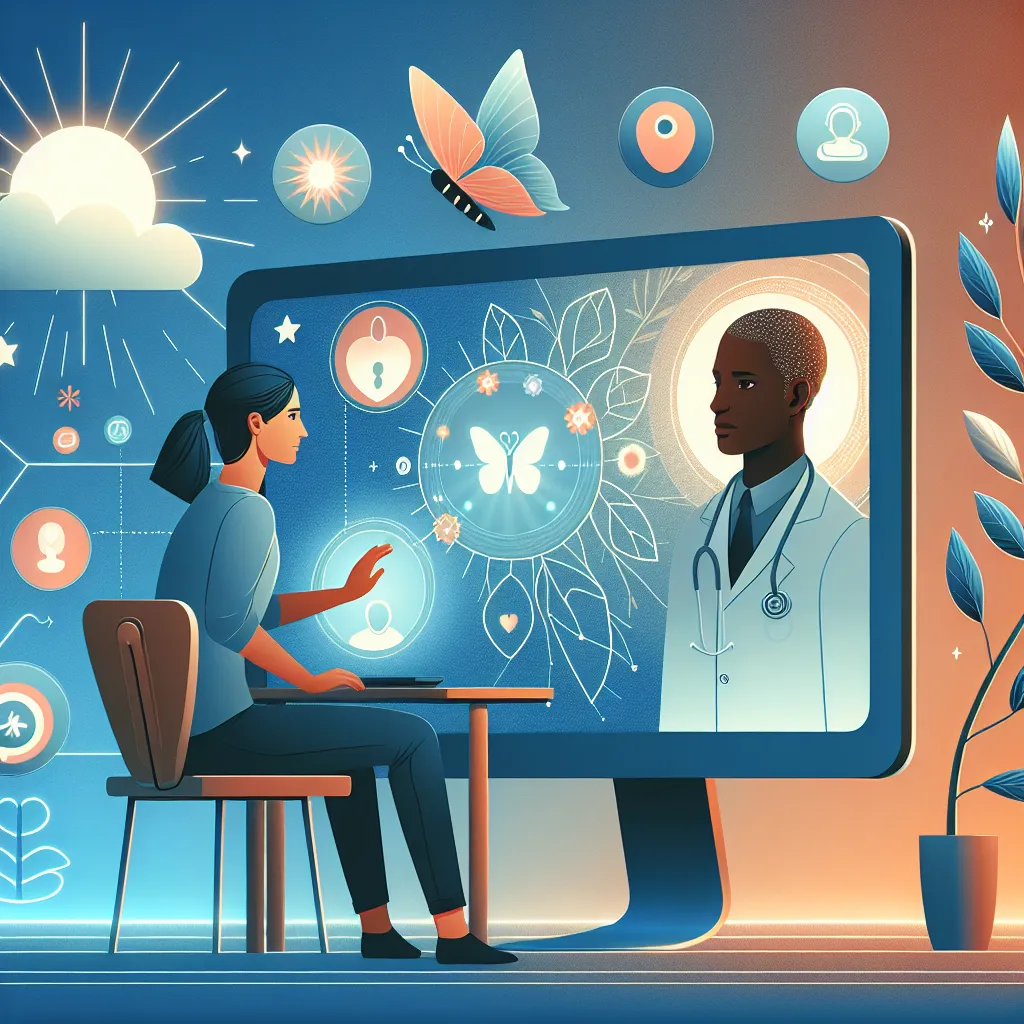Revolutionizing Mental Health: The Rise of Online Depression Treatment
Revolutionizing Mental Health: The Rise of Online Depression Treatment
Introduction
Depression is a widespread mental health condition affecting millions of people worldwide. It can significantly impact an individual’s quality of life, relationships, and overall well-being. Traditionally, seeking treatment for depression involved face-to-face therapy sessions with a mental health professional. However, with the advancement of technology, online depression treatment has emerged as a convenient and accessible alternative.
The Benefits of Online Depression Treatment
1. Accessibility: One of the major advantages of online depression treatment is its accessibility. Individuals can access therapy sessions from the comfort of their homes, eliminating the need for travel and potential scheduling conflicts. This is particularly beneficial for those living in remote areas or individuals with limited mobility.
2. Anonymity and Privacy: Online treatment provides a level of anonymity that some individuals may find comforting. It allows individuals to seek help without the fear of being recognized or stigmatized. This anonymity can encourage more people to seek treatment and open up about their struggles with depression.

3. Convenience: Online depression treatment offers flexibility in scheduling therapy sessions. It allows individuals to choose a time that works best for them, accommodating their personal and professional commitments. This convenience can reduce barriers to seeking treatment and increase treatment adherence.
4. Cost-Effectiveness: In-person therapy sessions can be expensive, and individuals may also incur additional costs such as transportation. Online treatment often offers more affordable options, making mental health support more accessible to a wider range of individuals.
The Evolution of Online Depression Treatment
Online depression treatment has rapidly evolved over the years, thanks to advancements in technology and increased recognition of the importance of mental health. Initially, online treatment primarily consisted of email-based therapy, where individuals could communicate with therapists via email. However, the emergence of video conferencing and live chat platforms has revolutionized the online therapy landscape.
Video conferencing allows for face-to-face interactions between therapists and clients, simulating the experience of in-person therapy. This visual connection can help establish a stronger therapeutic relationship and enhance the effectiveness of treatment. Live chat platforms, on the other hand, provide individuals with real-time support and guidance, allowing them to communicate with therapists instantaneously.
Efficacy of Online Depression Treatment
Research has shown that online depression treatment can be as effective as traditional in-person therapy. A meta-analysis conducted by the Journal of Affective Disorders concluded that online interventions for depression are equally effective in reducing depressive symptoms. The study also found that online treatment can lead to significant improvements in overall well-being and quality of life.
Online treatment often incorporates evidence-based therapeutic techniques, such as cognitive-behavioral therapy (CBT), which have proven to be effective in managing depression. Therapists can guide individuals through structured sessions, provide coping strategies, and monitor progress, ensuring comprehensive and personalized care.
Considerations for Online Depression Treatment
While online depression treatment offers numerous benefits, it is essential to consider certain factors before opting for this approach. Some considerations include:
1. Internet Reliability: Stable internet connection is crucial for seamless online therapy sessions. Individuals should ensure they have a reliable internet connection to avoid disruptions during their sessions.
2. Technology Literacy: Basic technology literacy is necessary to navigate the online therapy platforms effectively. Individuals should feel comfortable using video conferencing or live chat tools to make the most out of their treatment sessions.
3. Severity of Depression: Online treatment may not be suitable for individuals with severe depression or those at risk of self-harm. In such cases, in-person therapy or a combination of online and in-person treatment may be more appropriate.
The Future of Online Depression Treatment
The future of online depression treatment looks promising. As technology continues to advance, we can expect more innovative solutions and platforms to cater to individuals seeking mental health support. Virtual reality therapy, smartphone applications, and artificial intelligence-driven interventions are just some of the potential advancements on the horizon.
Additionally, the COVID-19 pandemic has further accelerated the adoption of online mental health services. With social distancing measures in place, online treatment has become the primary mode of therapy for many individuals. This increased acceptance and reliance on virtual mental health care will likely continue even after the pandemic subsides.
Conclusion
Online depression treatment has revolutionized mental health care by providing accessible, convenient, and cost-effective options for individuals seeking help. The efficacy of online interventions in reducing depressive symptoms has been established, making it a viable alternative to traditional in-person therapy. As technology continues to evolve, we can expect further advancements in the field, improving the overall accessibility and effectiveness of online depression treatment. The future of mental health care is here, and it is online.
